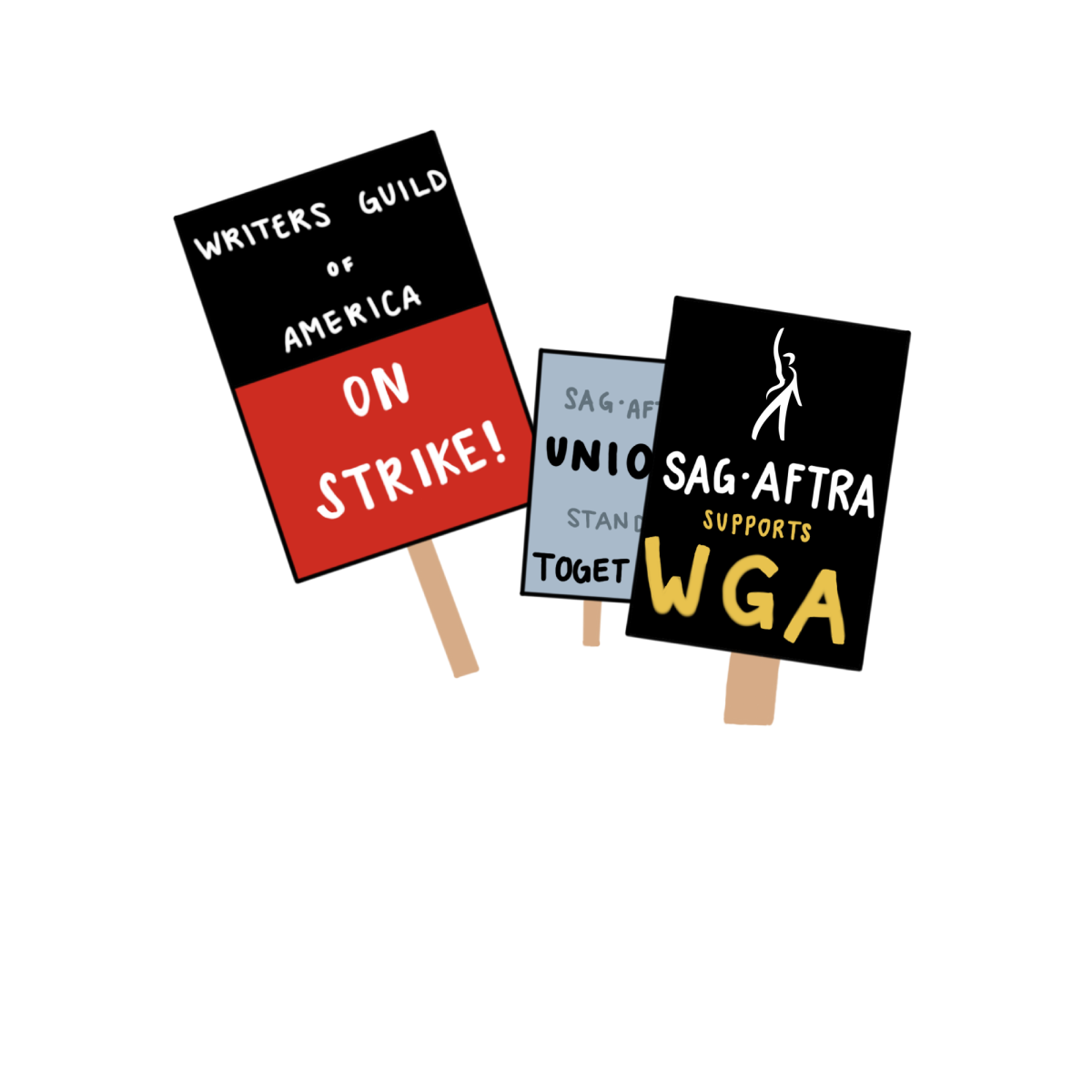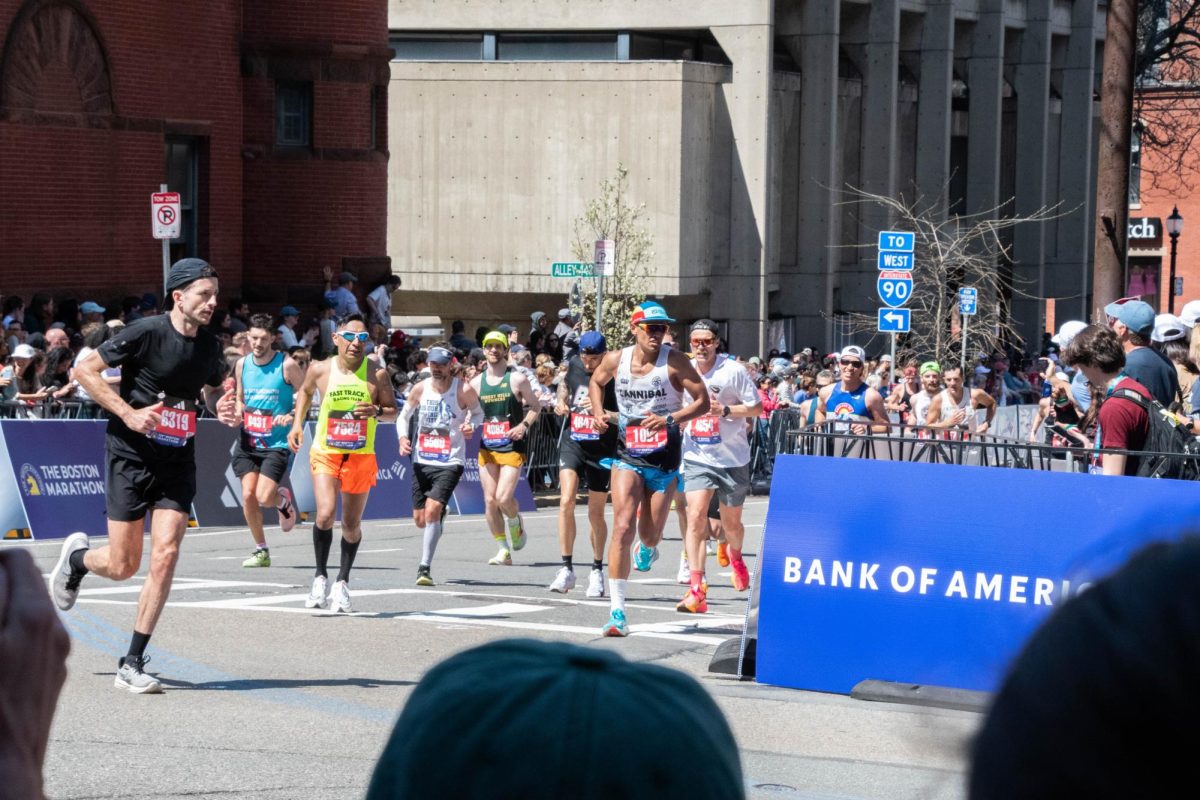Unions have been in the news a lot lately, and it’s not just because some of Hollywood’s most famous stars have traded “learning lines” for “picket lines.”
Since the COVID-19 pandemic began, the United States has seen some of the highest labor mobilization rates of the last 50 years. President Biden’s recent historic appearance at a United Auto Workers strike in Michigan marks a transitional moment for organized labor and the public perception of unions and their members.
But as strikes dominate news cycles and public discourse, what is revealed about America’s darling Hollywood and the dynamics of power at play in the entertainment industry?
After the Screen Actors Guild-American Federation of Television and Radio Artists, or SAG-AFTRA, joined the Writers Guild of America, or WGA, in their strike against studios and streaming services in July, Hollywood came to a screeching halt. Actors rushed to join writers who had been striking since May, including Matt Damon, Cillian Murphy, Florence Pugh and Emily Blunt, who walked out of the U.K. premiere of Christopher Nolan’s “Oppenheimer” to “write their picket signs,” the director said.
Eleven thousand writers stopped working on new material, 116,000 actors could not film or promote TV shows or movies and studios tried to fill empty seats at the writers’ table with scabs — writers willing to cross the picket line for reduced pay. Talk shows and any live TV shows requiring writers were postponed indefinitely, as well. Many films, like the highly-anticipated sequel to Denis Villeneuve’s “Dune,” were pushed back to 2024 due to their inability to complete and promote the projects, reshaping both the economic prospects of the industry and the awards circuit landscape.
Writers and actors rightfully feared the worst, especially after a studio executive reportedly told Deadline that the studios’ plan was “to allow things to drag on until union members start losing their apartments and losing their houses.” During the strike, studios leaned into their long history of union busting by trimming trees that shielded striking actors and writers from extreme heat.
Because WGA members voted to ratify the final deal, the writers’ strike has officially concluded. SAG-AFTRA’s future remains unclear as the union continues to fight for higher pay. In these uncertain times, the culture and market built around film, TV and talk shows are now forced to begin reckoning with the issues (both economic and social) that the months-long strike has brought into the spotlight.
The deal offered by the Alliance of Motion Picture and Television Producers, or AMPTP, addresses the job insecurity and low pay that drove the unions to the picket lines, securing increased royalty payments and regulations imposing minimum staffing in production. The union also won protections against the use of artificial intelligence, which has been one of the most significant existential threats to the profession in recent years.
Fascinatingly, studios will now also be required to provide viewership data to writers, as the contract establishes a success-based residual for employees of streaming services. This change not only forces studios to be more honest with the pay they offer writers, but also leaves them vulnerable to embarrassment if a project they invested significant money into does poorly. This shift in the relationship between audience, artist and studio will undoubtedly impact where and when studios, especially streaming giants like Netflix and Max, decide to spend their money.
SAG-AFTRA has yet to reach an agreement with AMPTP. Although WGA has officially ended its strike, the union encouraged writers to join actors on the picket lines until a deal is reached, as the shows and movies writers create can’t start rolling cameras until SAG-AFTRA also concludes its strike.
Union organizers believe the WGA negotiations, and the contract that emerged from them, can serve as a “blueprint” for the finalization of SAG-AFTRA’s deal. Unfortunately, there is no way to predict exactly when the studios will make concessions to actors’ demands, meaning that until further notice, movie and television production and promotion will remain on hold.
Although celebrities weren’t officially working as actors or writers during the strike, they were far from out of the public eye. The star-studded picket line received wide public support from fans online, with celebrities creating a public auction to raise money for striking cast and crew members struggling to make ends meet.
The reception of celebrities during the strike wasn’t all so sweet, though. After resuming production of her talk show amid negotiations, Drew Barrymore received an onslaught of criticism online, especially as tales of Conan O’Brien’s loyalty and generosity in his 2007-2008 support of striking writers recirculated online. Barrymore later issued a tear-filled apology video and placed the production of her show back on pause. If she had waited another week, Barrymore could’ve avoided plenty of discourse and her alleged “fall from grace,” but the industry wouldn’t have seen so clearly that the public could force producers, studios and streaming services to reckon with their mistreatment of the unions.
The strong response to Barrymore’s scabbing reflects the growing support for labor unions among the American people. For unions, the challenge now is to transfer that passion, intensity and commitment to industries that feel less personally relevant or threaten wider economic blowback. It’s easy to get excited about a celebrity holding up a catchy sign referencing their most popular role, but the public needs to have the same enthusiasm for professions like pipefitters, auto workers and airline employees.
The strike on Hollywood challenged American patterns of celebrity and consumption, revealing a new layer of the entertainment industry’s corruption. In an industry centered around levity, beauty and glamour, it’s easy to overlook the ugly, unjust side of film and television production. But because of the commitment and sacrifice of writers and actors, the world has watched a group of workers reclaim their power and win their demands in the face of corporate greed and cruelty. Maybe someone will make a movie about it someday.










